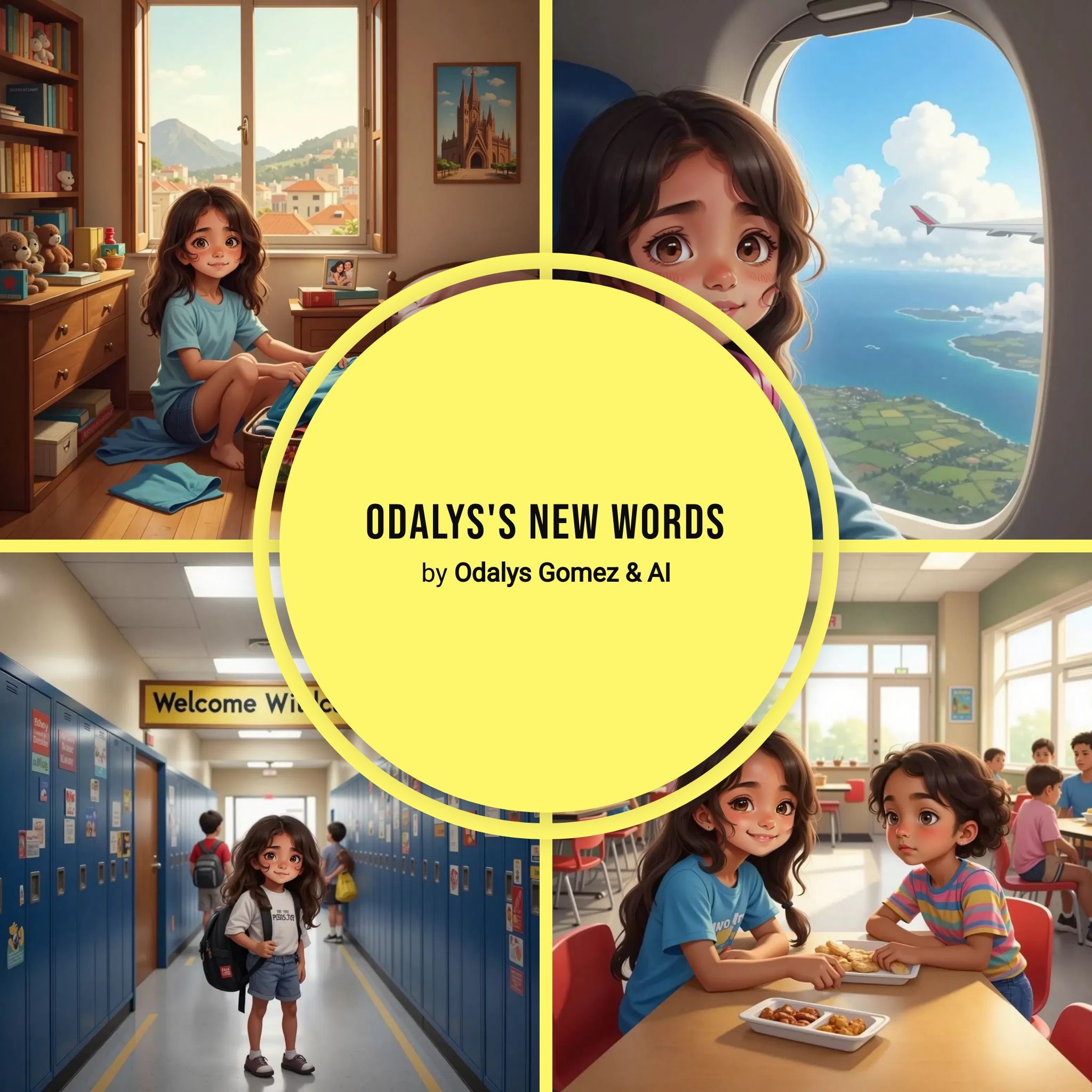
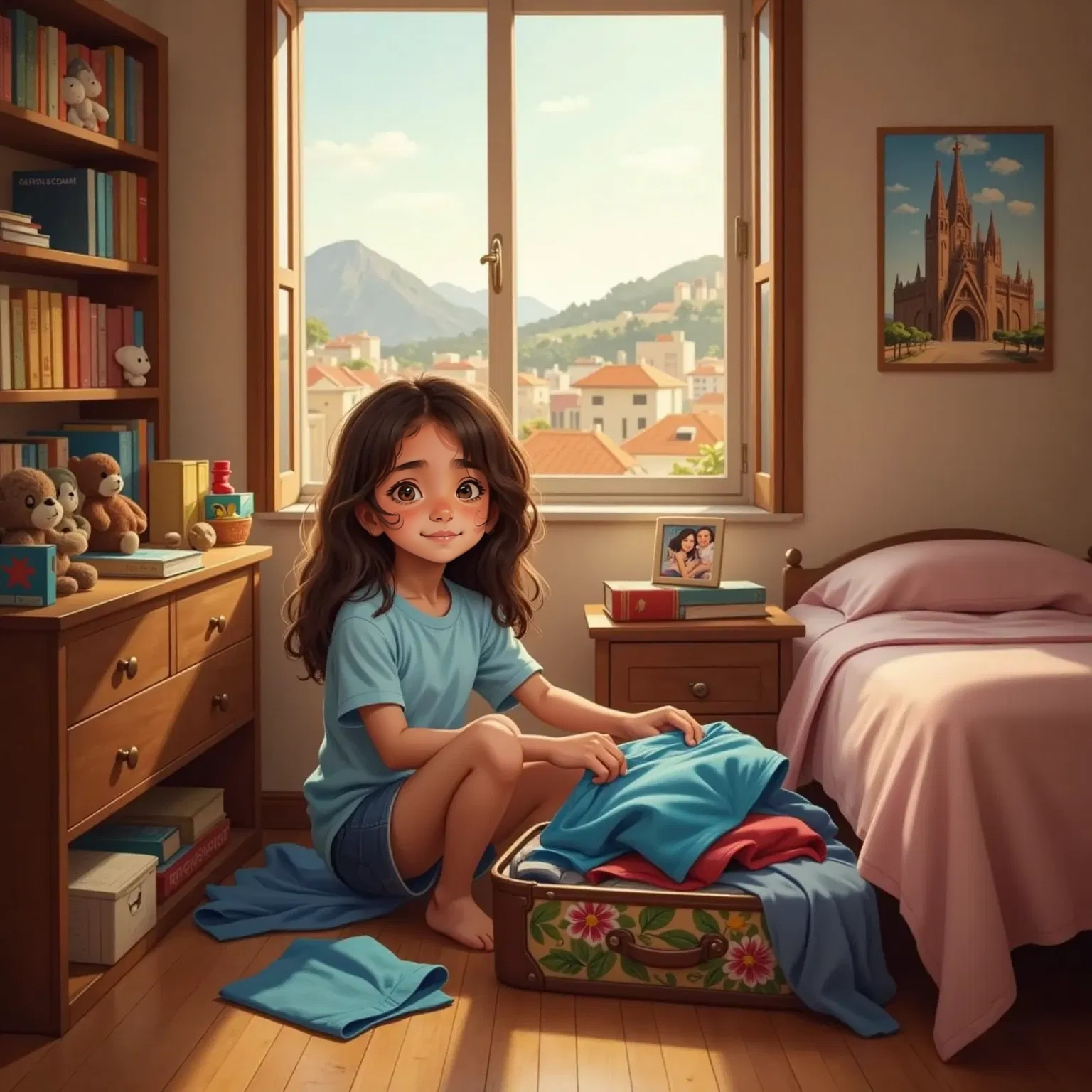
In the warm glow of her room in Barcelona, Odalys folded her favorite shirt and placed it gently into a suitcase.
She paused to look out the window—her city shimmered with orange rooftops and memories.
Tomorrow, she would leave it all behind.
A new country waited. A new language, too.
She wrapped her questions tightly around her heart:
Will they understand me? Will I understand them?
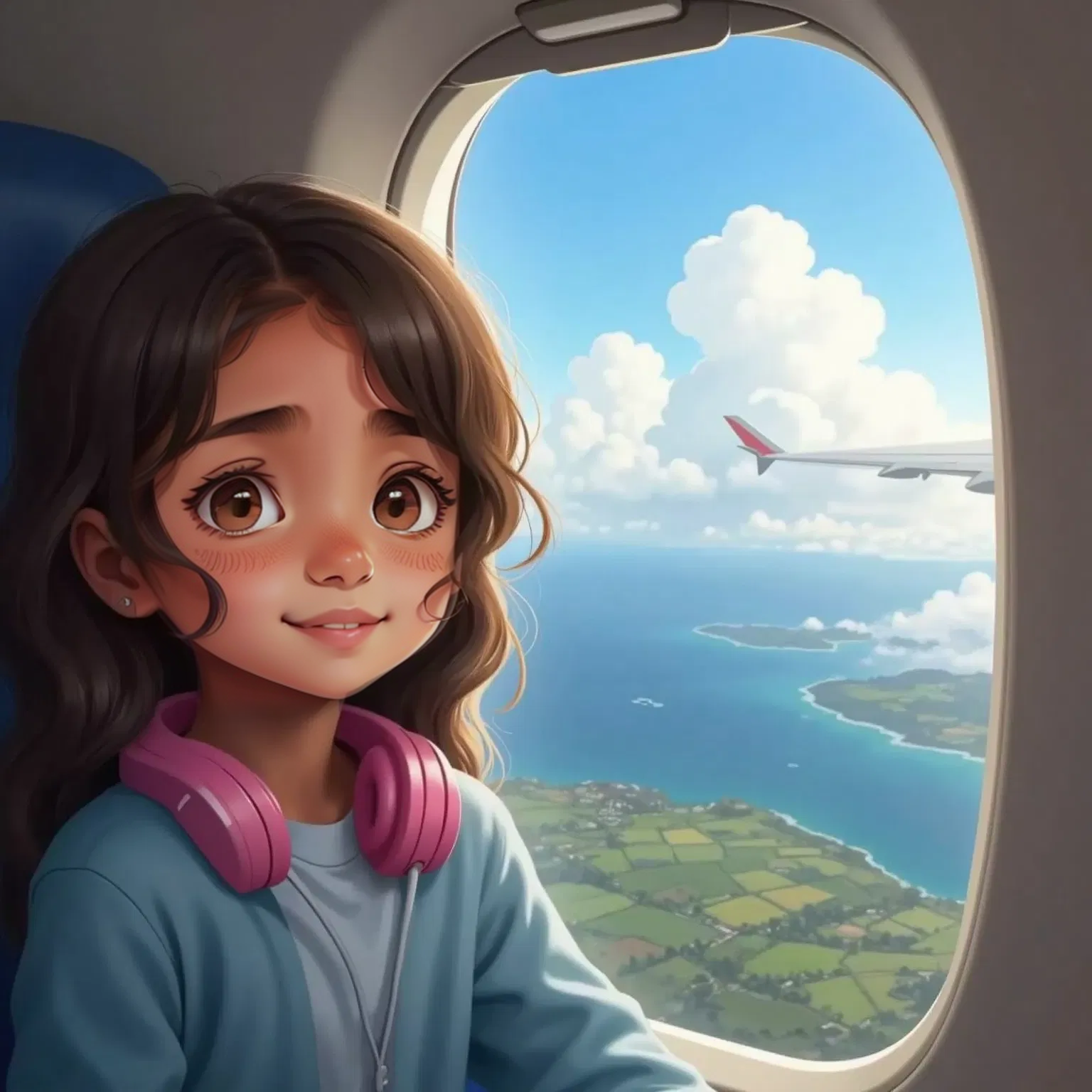
The airplane hummed like a lullaby as it soared through the sky.
Odalys pressed her forehead to the window and whispered goodbye to Spain.
Below, the world became smaller. Above, the clouds welcomed her like soft pillows.
She imagined her words trailing behind the plane—Spanish ones floating like petals.
She didn’t know what the English ones would sound like yet.
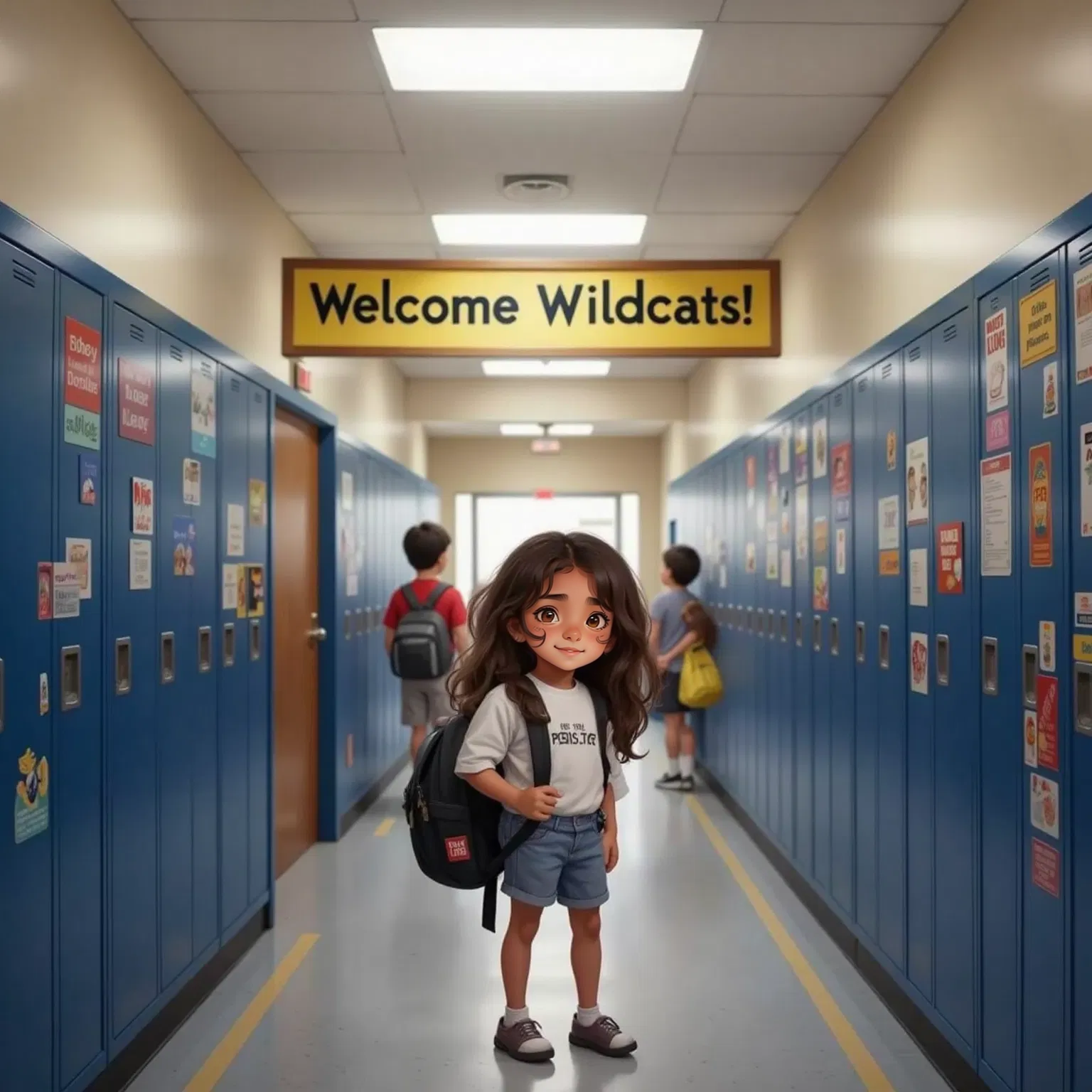
Her new school was loud. The hallways buzzed with chatter Odalys couldn’t quite follow.
She gripped her backpack like a shield and tried to smile,
but everything felt fast—like running in a dream where your feet can’t move.
A girl bumped into her and said, “Sorry!”
Odalys blinked.
What did that mean?
She wanted to answer, but the words stayed stuck inside her.
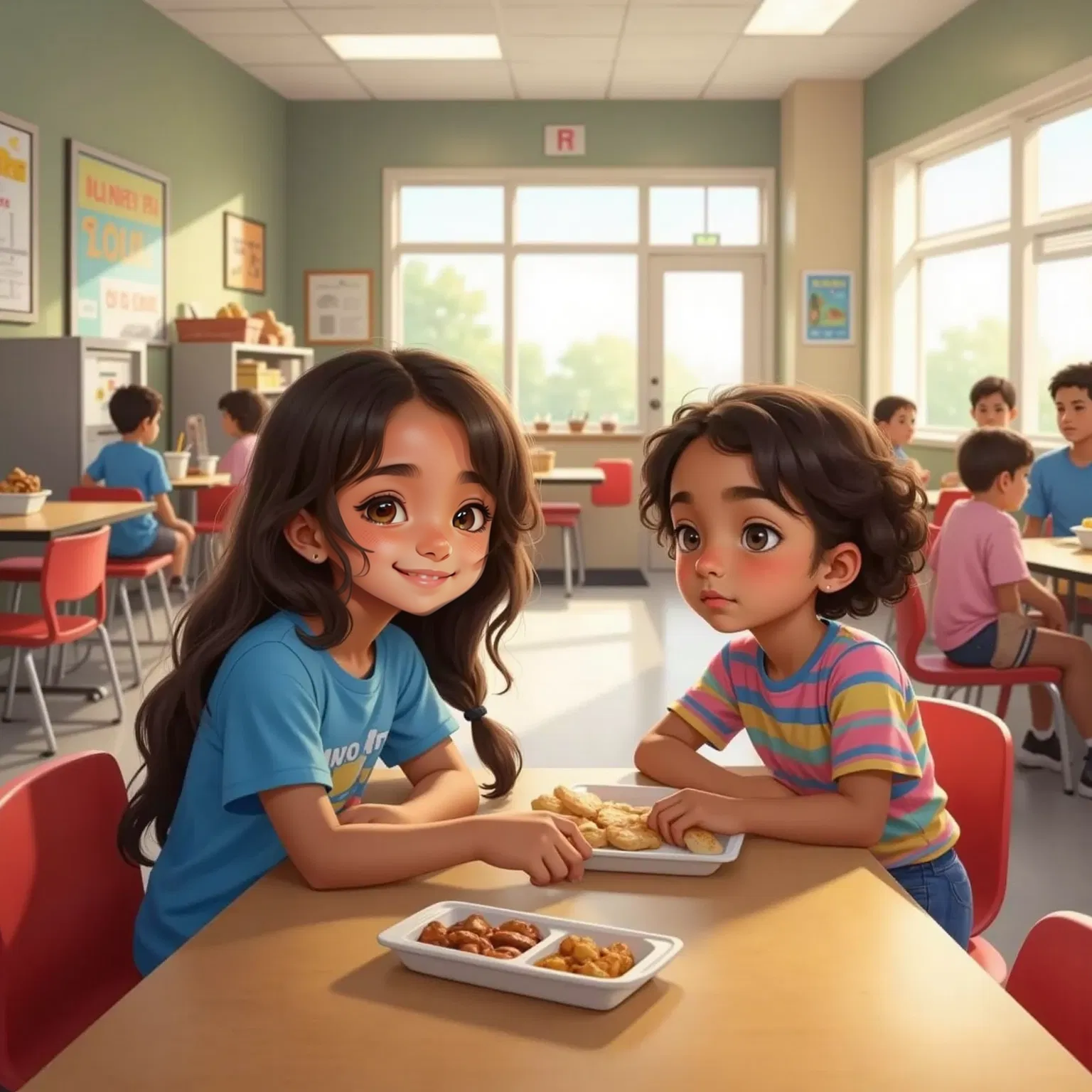
At lunch, Odalys sat alone, picking at her food.
She missed bocadillos from home.
Then, a girl with curly hair and a bright voice appeared.
“Hi! I’m Emma. Can I sit here?”
Odalys nodded quickly, her heart thumping.
She opened her mouth and let out a tiny, nervous “Hi.”
Emma grinned.
Just one word. But it opened the door.
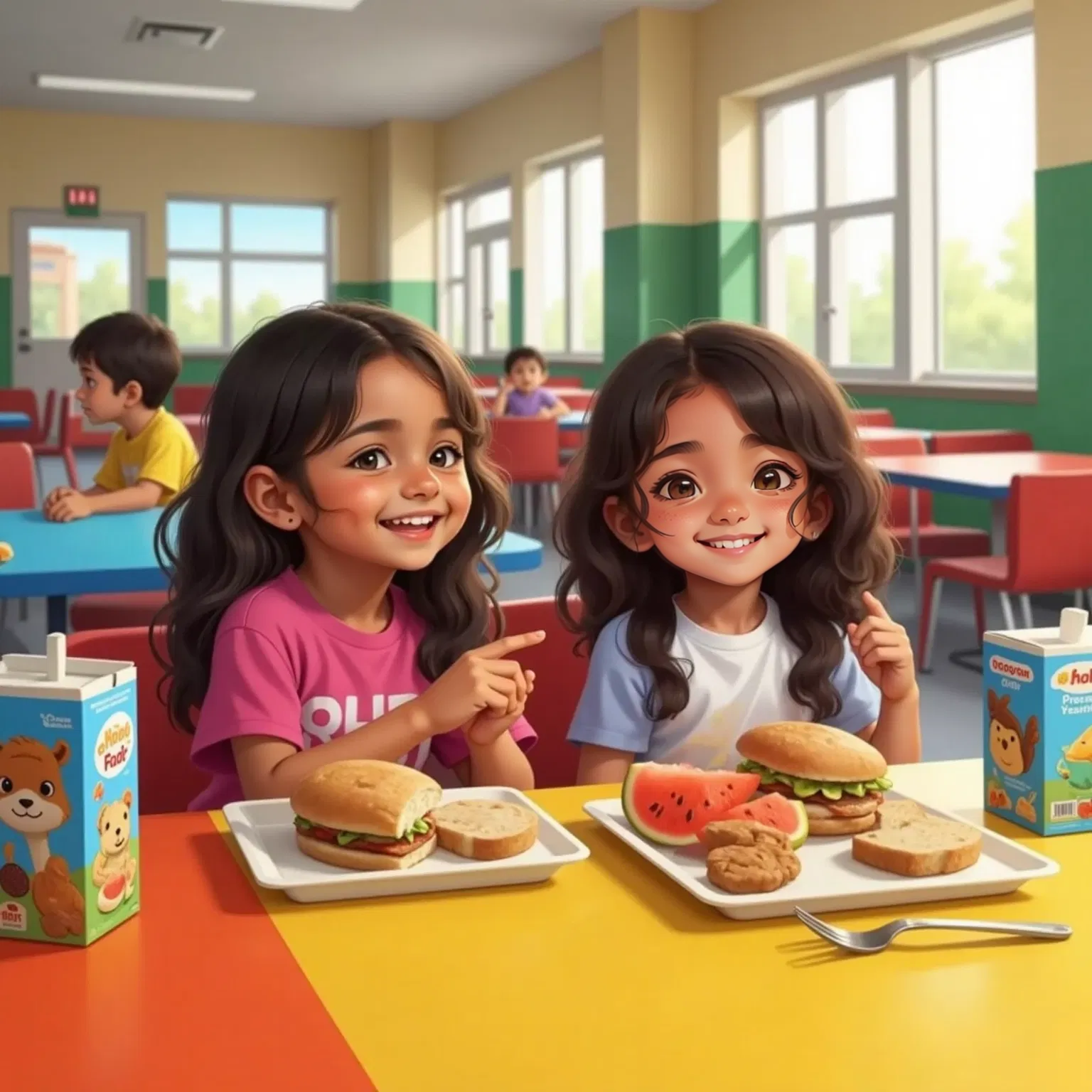
Emma pointed to the tray in front of her.
“This is a sandwich,” she said slowly, clearly.
Odalys repeated, “San…witch?”
They burst into giggles, the sound bouncing between them like sunlight on water.
From that moment, lunch wasn’t so lonely anymore.
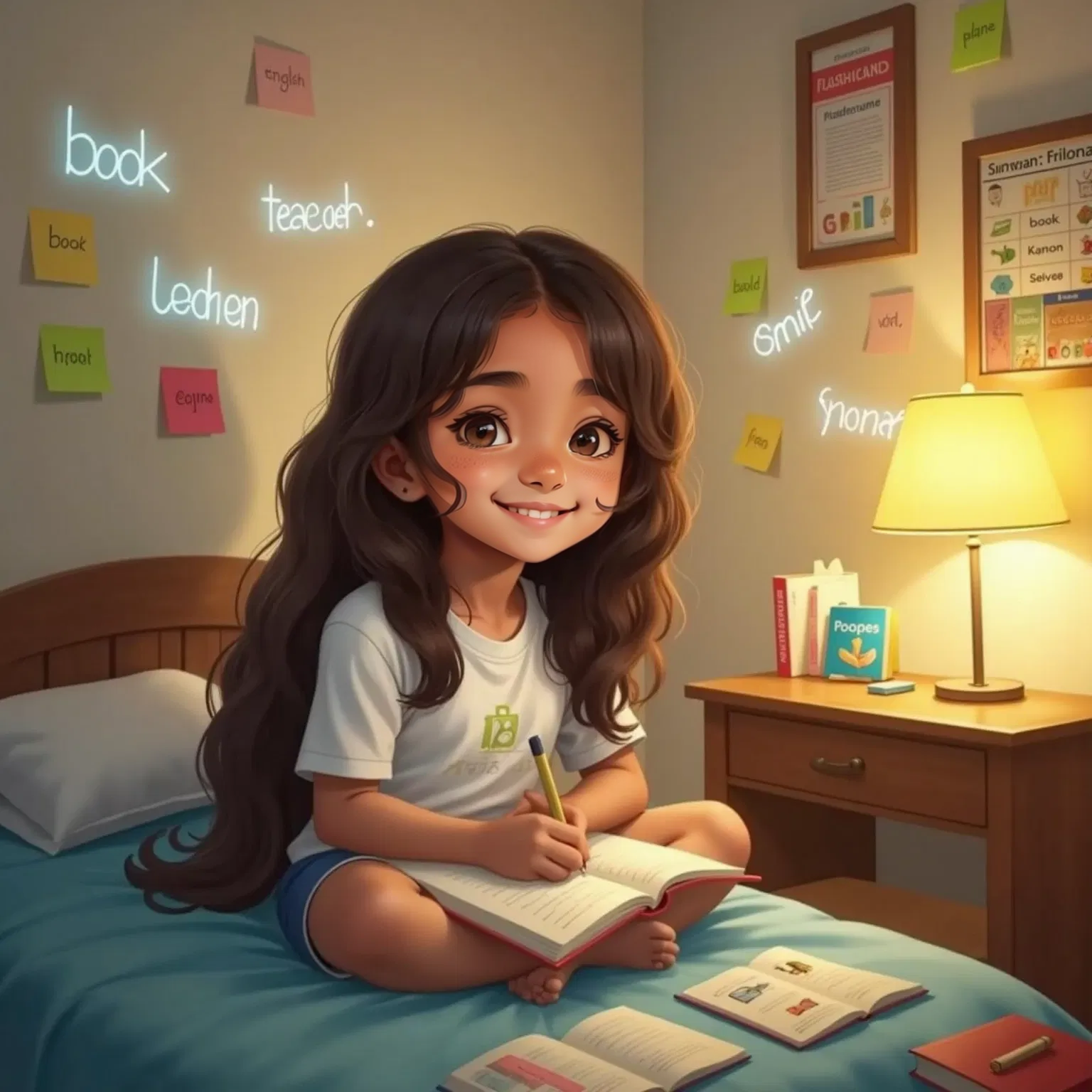
Every day, Odalys gathered new words like shiny shells on a beach.
Book. Teacher. Smile.
She kept them in a notebook, drew little pictures to remember.
Sometimes she would whisper them before bed, like bedtime spells.
The words didn’t always come easily—but they came.
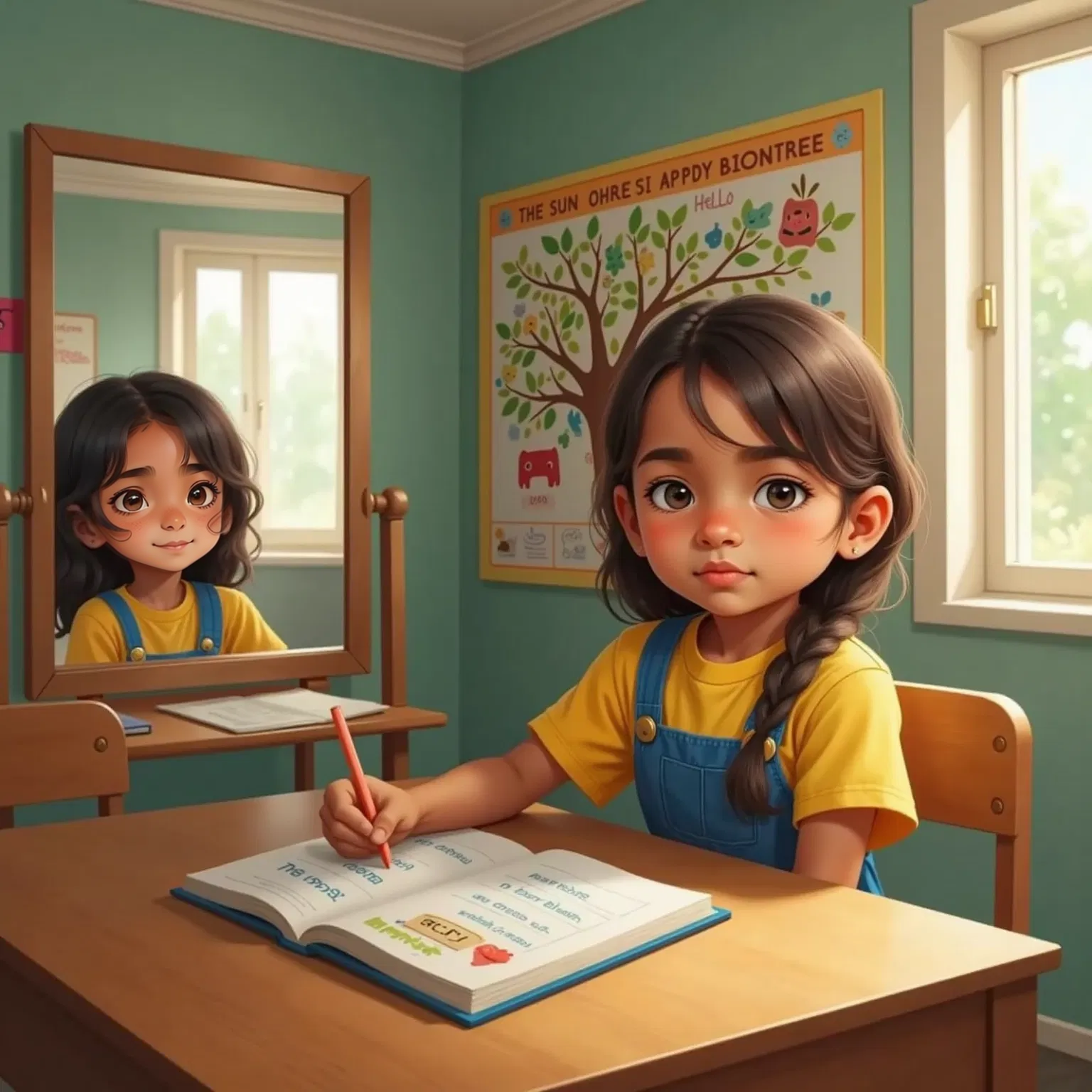
Reading in English was like climbing a tall tree.
Hard at first, but the view got better the higher she went.
Odalys read stories with big pictures and small sentences.
She practiced in the mirror:
“The sun is bright. The dog is fast. I am learning.”
And she was.
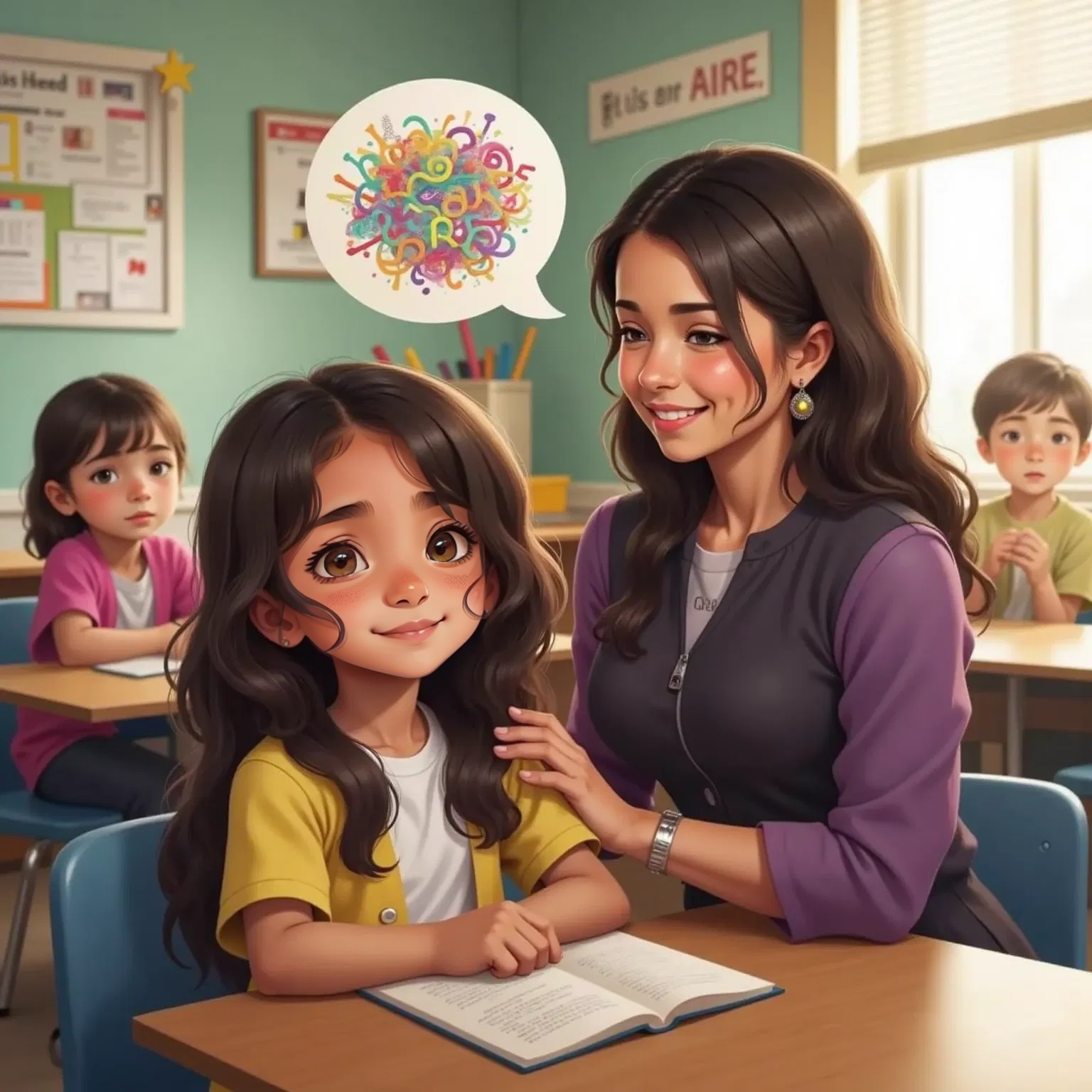
Some days, Odalys’s mouth felt full of marbles.
She would say the wrong word, or mix up the letters.
Other kids sometimes laughed, and she felt small.
But her teacher knelt beside her and whispered,
“You are brave. Every word you try is a step forward.”
Odalys wrote that down. She wanted to remember.
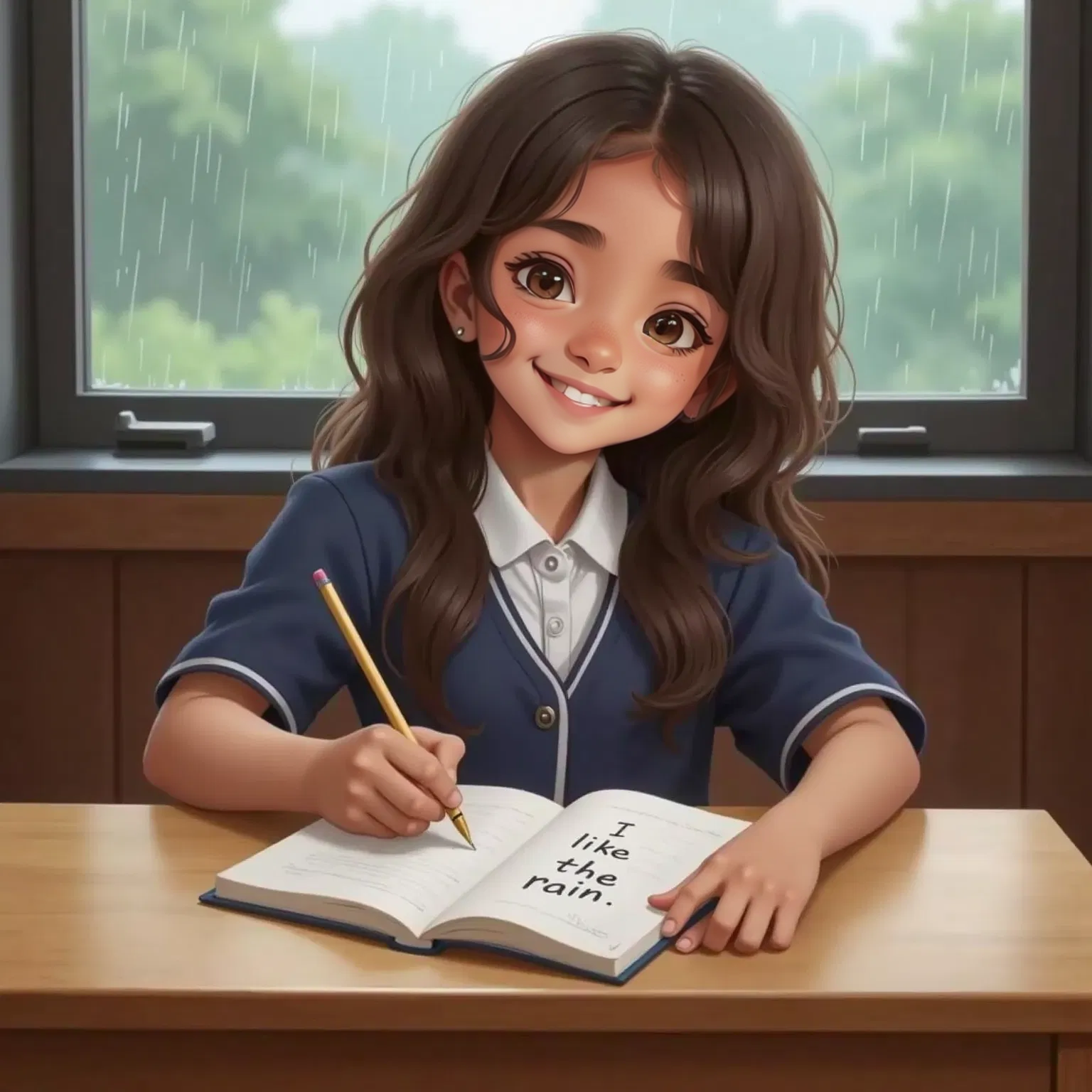
Then came the day she wrote a full sentence by herself:
“I like the rain.”
It was simple.
But to her, it felt like building a bridge from one world to another.
She smiled at the paper.
I’m doing it.
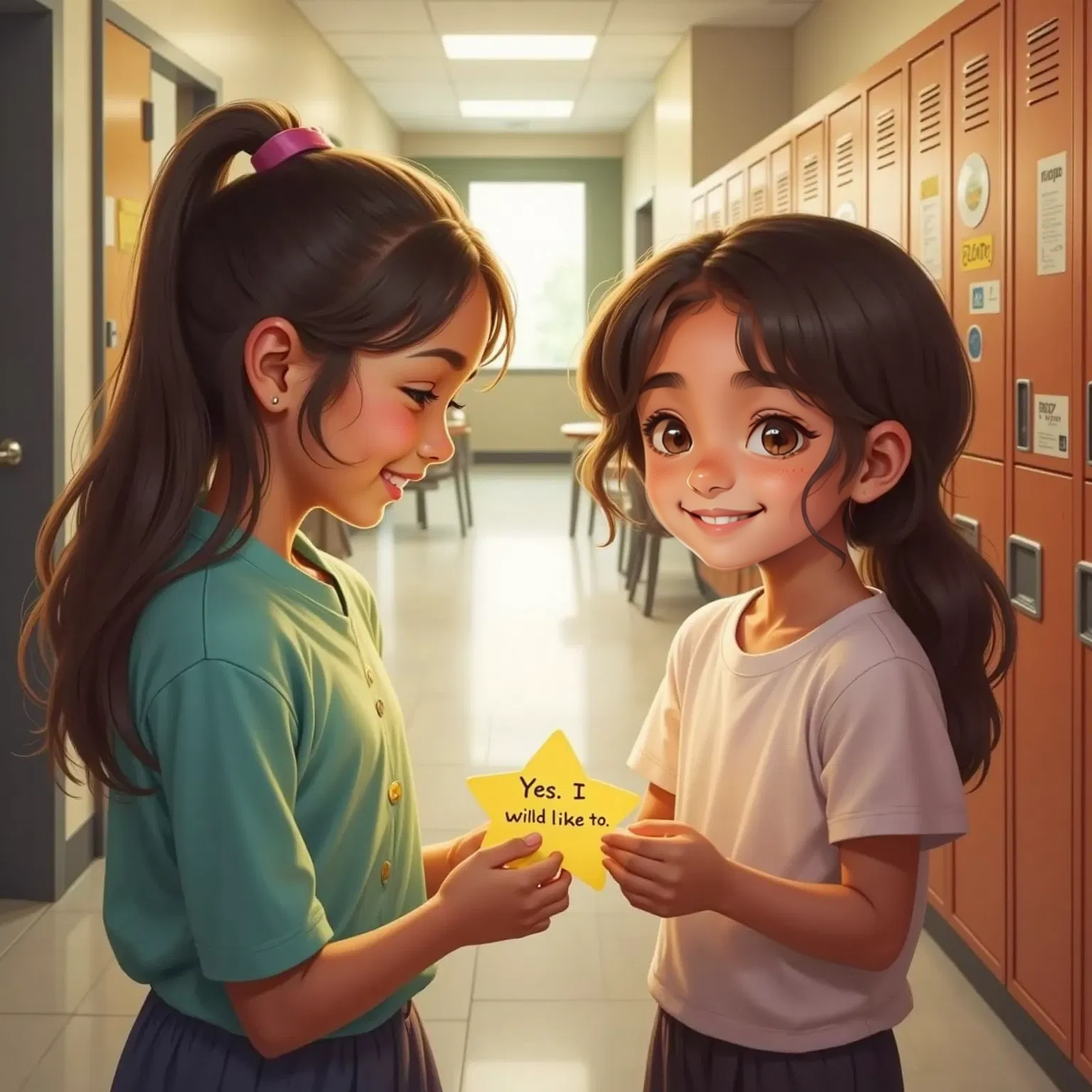
One afternoon, Emma passed her a note folded into a star.
“Come over after school?” it said in loopy handwriting.
Odalys felt the words bloom in her hands.
She wrote back, careful and proud:
“Yes. I would like to.”
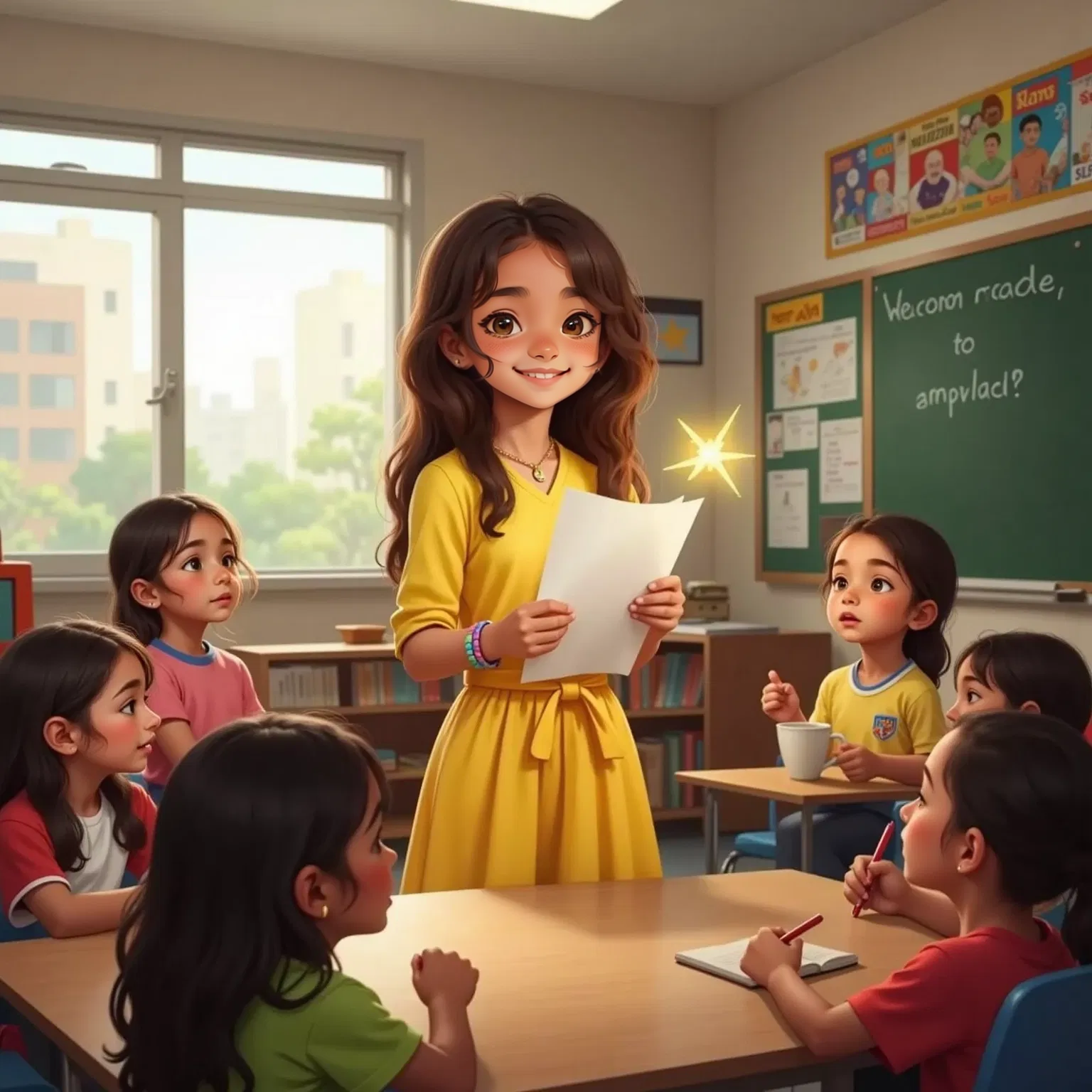
Weeks passed. Her notebook grew full. Her voice grew louder.
Then her teacher asked her to read a paragraph aloud to the class.
Her hands shook as she stood, paper rustling.
But her voice was steady.
“I come from Spain. I speak two languages. I am learning more every day.”
The classroom clapped. Emma beamed.
Odalys glowed.
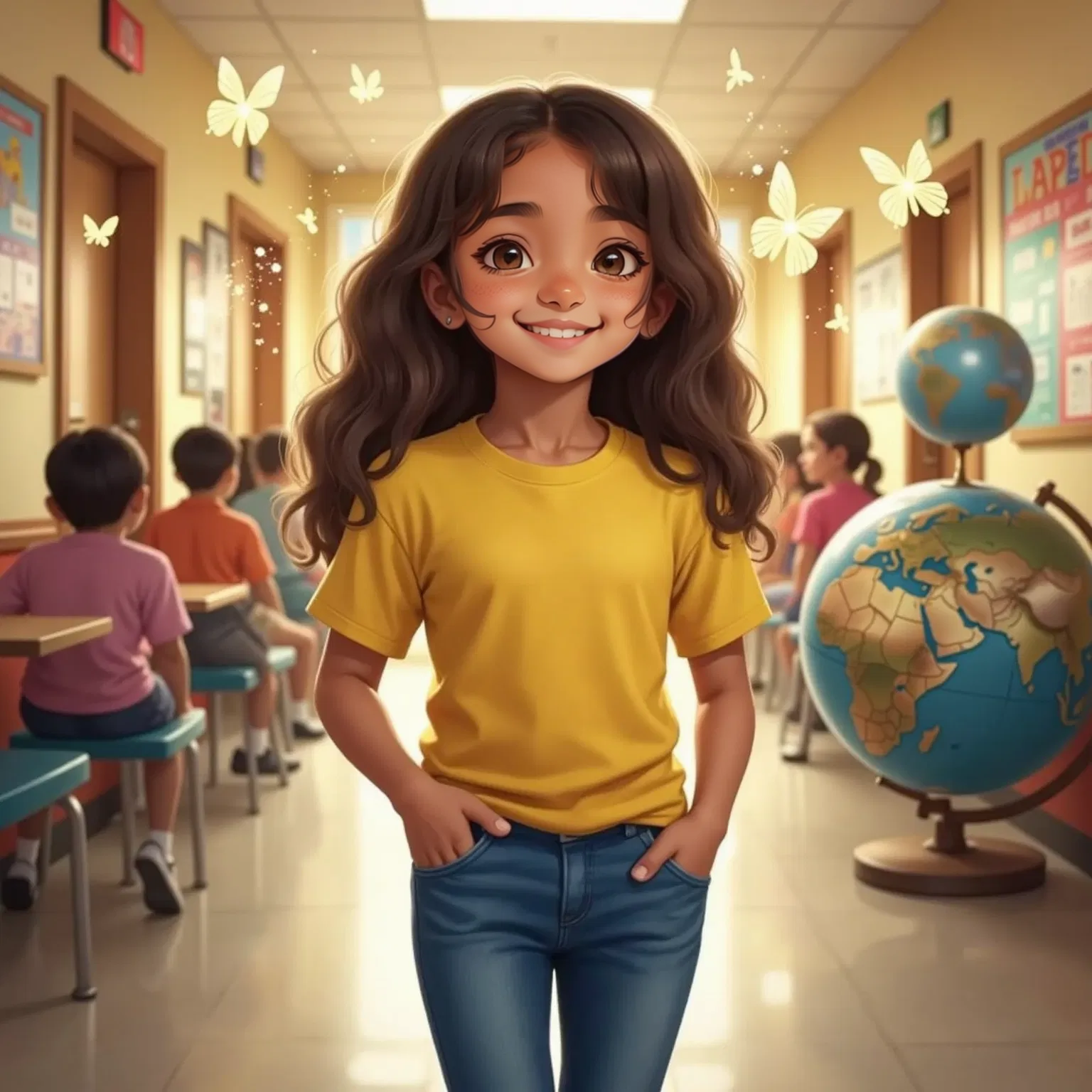
Now, Odalys walks through the halls with words dancing around her.
She speaks in two languages—one from her past, one from her present.
She knows now: words are not walls.
They are bridges.
And she is learning to cross every one.